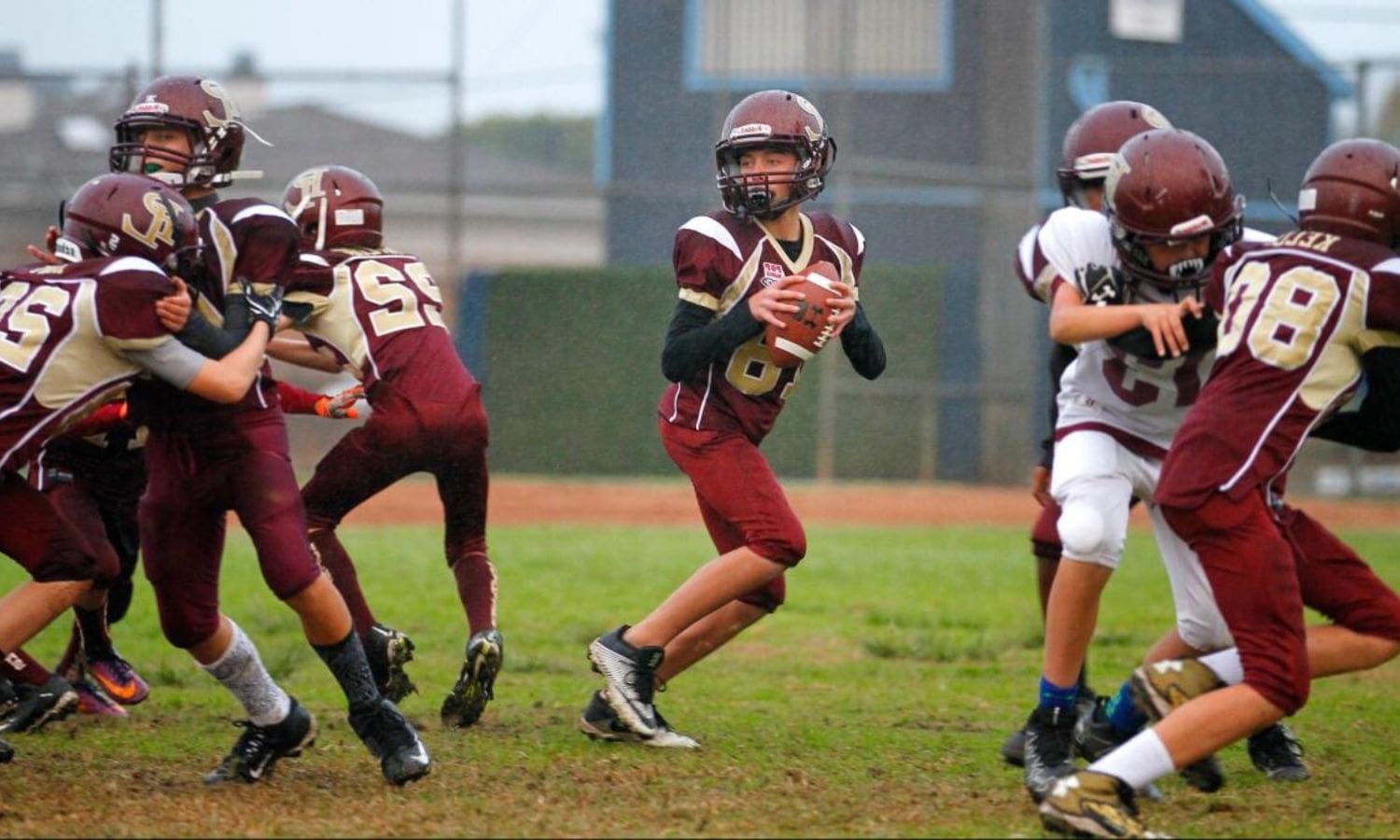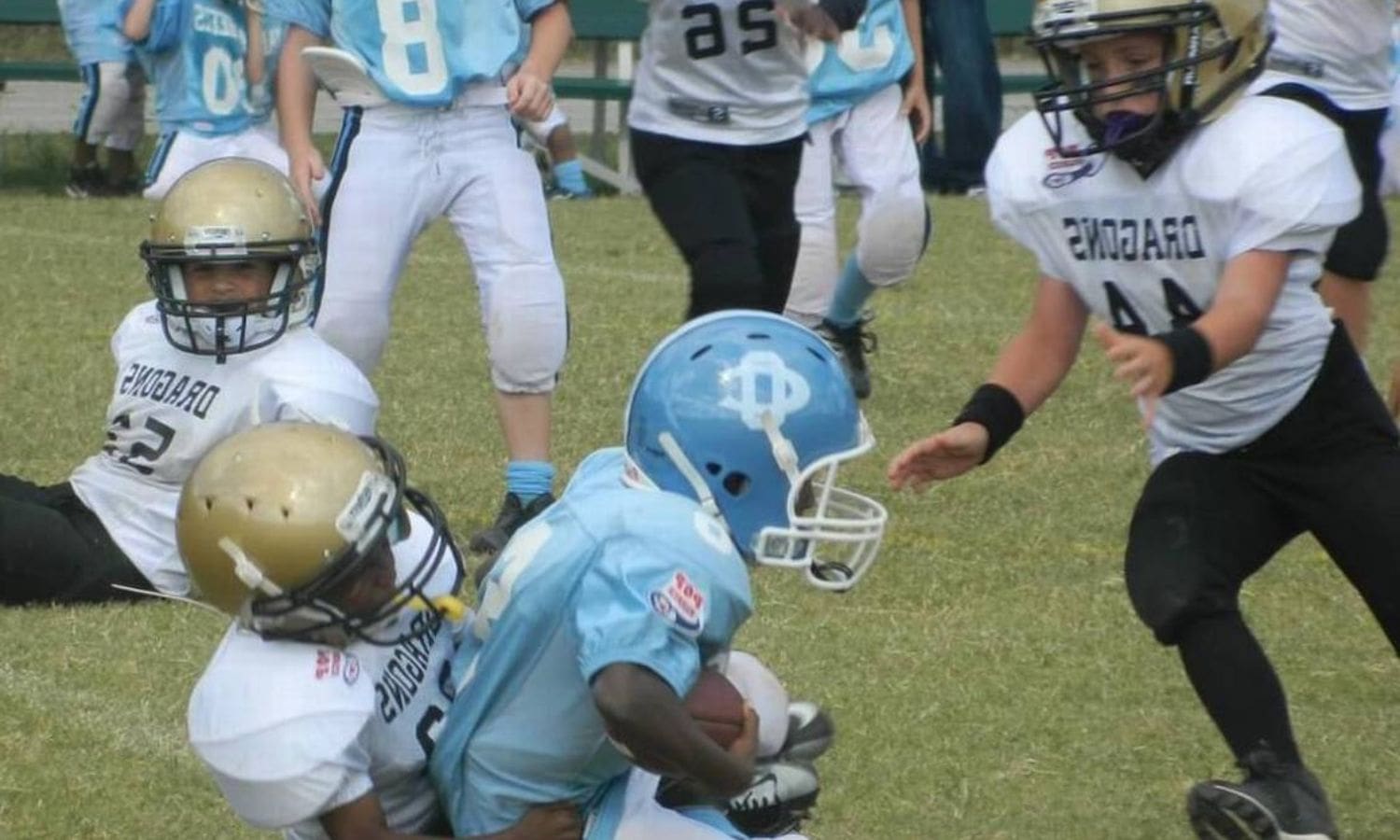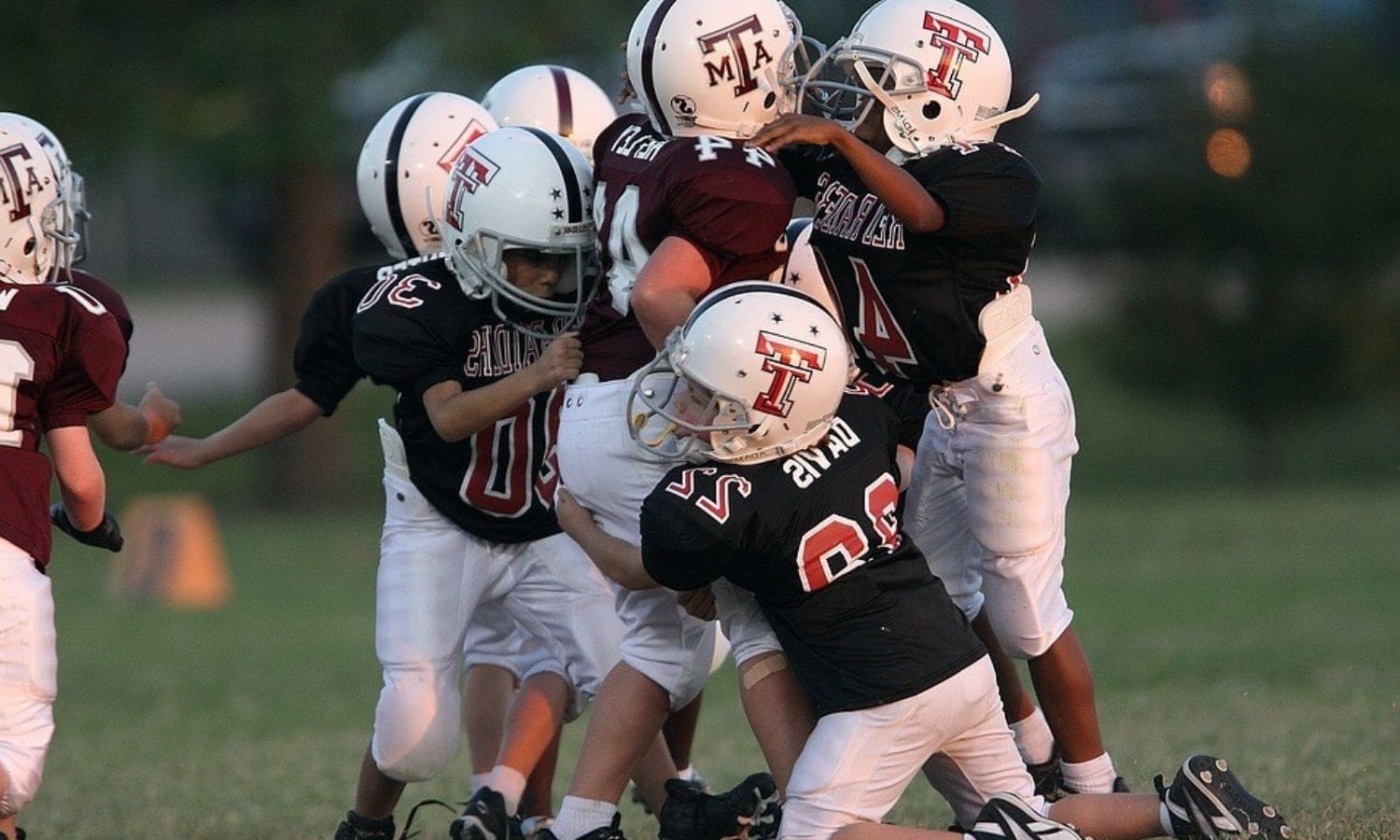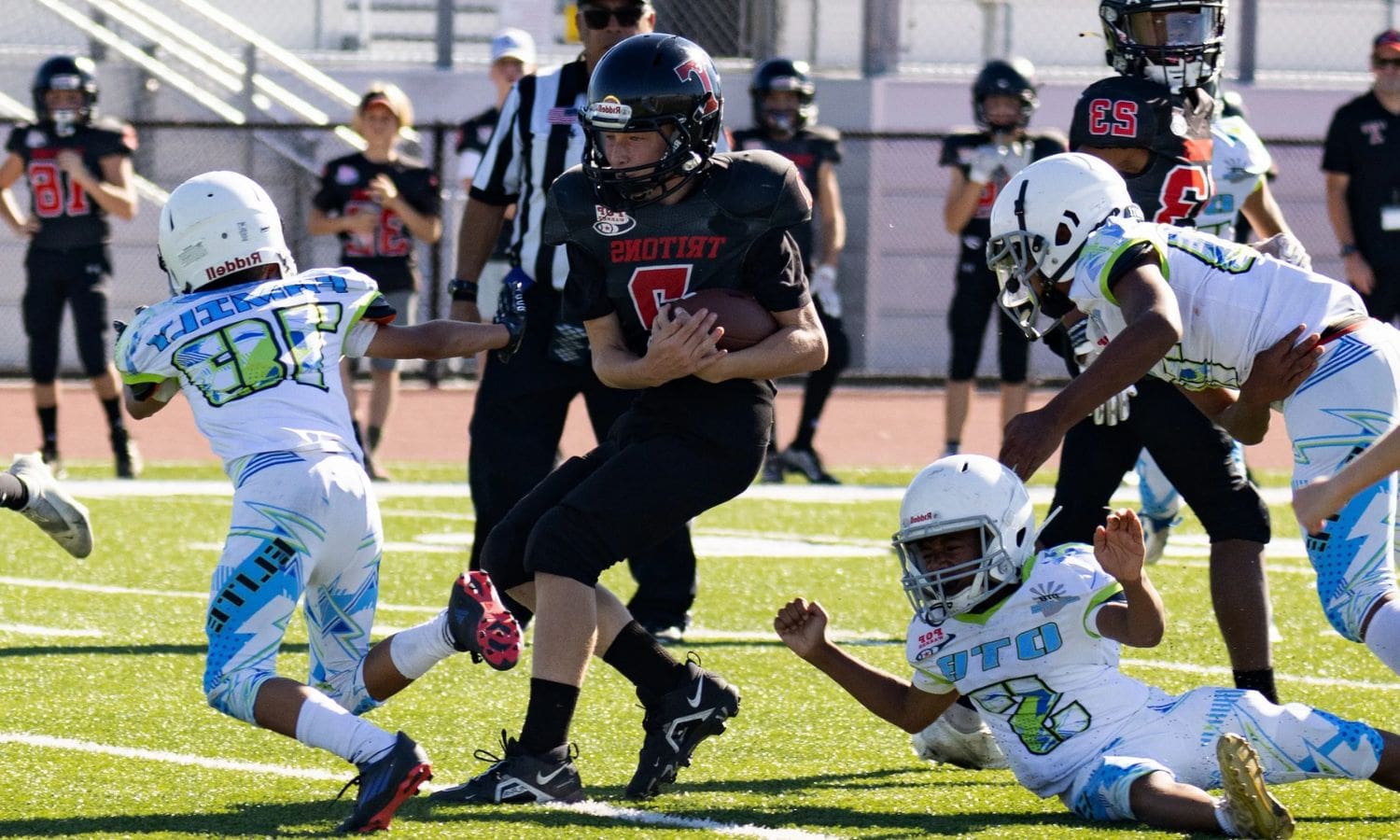CAlifornia Proposed CA Law That Would Ban: The proposed California law, Assembly Bill 734, has sparked a contentious debate surrounding the future of tackle football for children. Advocates argue that such a ban would protect young athletes from the potential long-term health risks associated with the sport, while opponents contend that it would infringe upon personal freedoms and undermine the benefits of team sports.
As the bill makes its way through committee deliberations, concerns about the impact on youth football programs and the complex nature of the debate remain at the forefront.
Key Takeaways
- California Assembly Bill 734 aims to prohibit children under 12 from participating in tackle football.
- Supporters argue that young children are more susceptible to long-term brain damage and that alternative non-contact forms of football should be encouraged.
- Arguments in favor of the proposed ban include prioritizing the safety of youngsters, promoting alternative forms of the sport, providing skills for tackle football later in life, and addressing concerns about potential brain injuries and trauma.
- Arguments against the proposed ban emphasize parental choices, parental rights and freedom of choice, interference with tradition and culture of youth football, and the importance of proper coaching and safety measures.
California’s Assembly Bill 734 and Tackle Football Debate
The debate surrounding California’s Assembly Bill 734 and the proposed ban on tackle football for kids is a contentious issue that has sparked widespread discussion and concern.
The bill, introduced by Sacramento Assemblymember Kevin McCarty, aims to prohibit children under the age of 12 from participating in tackle football due to worries about potential brain injuries and trauma associated with the sport. Supporters of the bill argue that young children are more susceptible to long-term brain damage and that alternative, non-contact forms of football should be encouraged.
On the other hand, opponents argue that tackle football teaches valuable skills, promotes teamwork, and builds character. They argue that proper coaching and safety measures can mitigate the risks associated with the sport.
The debate has prompted a larger conversation about the balance between the benefits and risks of youth tackle football and the role of legislation in protecting children’s well-being.

ALSO READ: California Proposed Conservation Rules Face Costly Criticism
Advocates and Opposition
While proponents argue that the proposed ban on tackle football for kids in California prioritizes the safety of youngsters and promotes alternative non-contact forms of the sport, opposition from Save Youth Football – California Coalition vehemently opposes the bill, emphasizing parental choices and deeming it unthinkable to criminalize youth football. The coalition, led by Steve Famiano, strongly believes that parents should have the freedom to decide whether their children participate in tackle football or not. They argue that the proposed ban infringes upon parental rights and interferes with the tradition and culture of youth football. The table below summarizes the key arguments put forth by both advocates and opposition:
| Advocates | Opposition |
|---|---|
| Prioritizes safety of youngsters | Emphasizes parental choices |
| Promotes alternative non-contact forms of the sport | Deems it unthinkable to criminalize youth football |
| Provides skills for tackle football later in life | Argues for parental rights and freedom of choice |
| Interferes with tradition and culture of youth football |
Both sides of the debate present valid points, with advocates focusing on the safety and development of children, while the opposition highlights the importance of parental autonomy and the preservation of youth football traditions.
Committee Deliberations and Concerns
During the committee deliberations, concerns were raised regarding the potential implications and practical implementation of the proposed ban on tackle football for kids in California. Several key concerns were discussed:
- Safety: Many committee members expressed concerns about the safety of children participating in tackle football. They questioned whether the ban would truly protect children from the risks of head injuries and long-term brain damage associated with the sport.
- Alternatives: Committee members also raised concerns about the lack of viable alternatives for children who enjoy football. They questioned whether the proposed ban would simply lead to children participating in other contact sports with similar risks.
- Parental Rights: Another concern raised was the infringement on parental rights. Some committee members argued that parents should have the right to decide whether their children can participate in tackle football, rather than the state imposing a ban.
These concerns will need to be carefully considered and addressed as the bill moves forward in the legislative process.

California Youth Football Act
The implementation of the California Youth Football Act in 2019 addressed safety concerns in youth football, introducing measures such as the presence of emergency medical technicians (EMTs) at every game and limitations on full-contact practices.
The Act aimed to ensure the safety and well-being of young athletes participating in football by requiring the presence of EMTs who can provide immediate medical attention in case of injuries. This provision helps to mitigate the risks associated with the physical nature of the sport.
Additionally, the Act imposed restrictions on full-contact practices, limiting them to one hour per week. This limitation helps to reduce the cumulative exposure to repetitive head impacts, which can lead to long-term neurological damage.
Complex Nature of the Debate
The complex nature of the debate surrounding the proposed ban on tackle football for kids in California reflects the broader societal struggle to balance safety concerns with the freedom of choice in youth sports. This contentious issue has sparked heated discussions among proponents and opponents, each presenting compelling arguments.
Safety: Supporters of the ban argue that tackle football poses significant risks to children, including the potential for long-term brain damage and other injuries. They believe that prioritizing child safety should take precedence over personal preferences and traditions.
Parental Choice: On the other side of the debate, opponents argue that parents should have the freedom to decide what sports their children participate in. They emphasize the positive aspects of youth football, such as teaching teamwork, discipline, and leadership skills.
Cultural Significance: Some opponents also highlight the cultural significance of football, arguing that it plays a vital role in communities and provides opportunities for social integration.
Finding a balance between these concerns is challenging, as both safety and personal choice are important considerations in youth sports.

Conclusion Of CAlifornia Proposed CA Law That Would Ban
The proposed California Assembly Bill 734 has sparked a heated debate regarding the ban on tackle football for kids. Advocates argue that it is necessary to protect children from potential long-term health risks associated with the sport, while opponents argue that it infringes on individual choice and the benefits of participating in organized sports.
As the committee continues to deliberate on the bill, concerns regarding the potential impact on youth football programs and the complex nature of this debate remain at the forefront.
Our Reader’s Queries
What is the new law in 2024 in California?
This year, a plethora of new laws are being implemented, ranging from the amount renters pay to secure a spot to the organization of toys in stores. Among these laws are higher minimum wage, cannabis protections, and expanded sick days in California. Stay informed and take note of these changes to ensure compliance.
What is the new law in California 2023?
Effective January 1, 2023, California’s minimum wage will be set at $15.50 per hour for all employers. However, it’s worth noting that certain cities and counties may have a higher minimum wage than the state’s standard rate.
What is AB 957 California 2023?
Starting September 2, 2023, a new law will require courts to consider a parent’s affirmation of their child’s gender identity or expression when deciding on custody or visitation. This is just one of many factors that will be taken into account when determining what is in the best interests of the child. By recognizing and respecting a child’s gender identity, this legislation aims to create a more inclusive and supportive environment for families going through custody battles.
What are the new gun laws in California 2024?
Senate Bill 2 introduces fresh regulations for concealed carry firearm permit holders. It restricts the areas where firearms can be carried, including schools, government buildings, and public transit. Additionally, CCW applicants must be at least 21 years old, have prior firearm training, and pass background checks.

